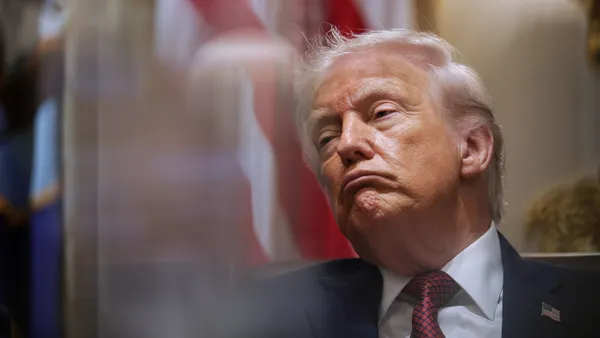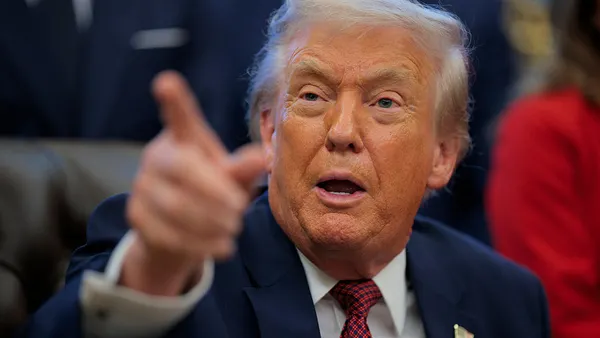Dive Brief:
- Mexico became the first country to ratify the United States, Mexico and Canada Agreement (USMCA) Wednesday when the Mexican Senate voted overwhelmingly to approve the deal.
- Canadian Prime Minister Justin Trudeau is in Washington today where he will meet with President Donald Trump and lobby for the deal with members of Congress.
- With several major hurdles cleared in recent weeks, the path forward for the USMCA is somewhat more clear, though it is by no means a done deal.
Dive Insight:
In order for the deal to go into effect, all three countries' legislatures must vote to ratify it. Last month, the U.S. lifted steel tariffs on both of its neighbors and Mexico passed a consequential labor law — both considered essential to the deal's survival. But after recent tensions between the U.S. and Mexico over immigration at the U.S. southern border and tariffs on Mexican imports Trump threatened as a result, the future of the deal was uncertain.
Despite Mexico's ratification and the tariff threats and machinations of the past month, support and skepticism for the deal remain largely unchanged in the U.S. Congress.
Nancy Pelosi is still waiting to see how Mexico implements its new labor legislation, the passage of which was a condition of Democratic support, reported Politico.
Some Democrats have also called for revisions to the deal. The Trump administration has strongly opposed amending the agreement in the past, but U.S. Trade Representative Robert Lighthizer went to Capitol Hill Wednesday to tell the House Ways and Means Committee he is open to hearing their concerns and possibly making accommodations in the text.
Congress has 18 working days left when both houses are in session before summer recess, and Canada is reportedly looking to pass the deal somewhat in tandem with the U.S. in what Canadian Foreign Minister Chrystia Freeland called a "goldilocks approach" — not too fast, not too slow.














